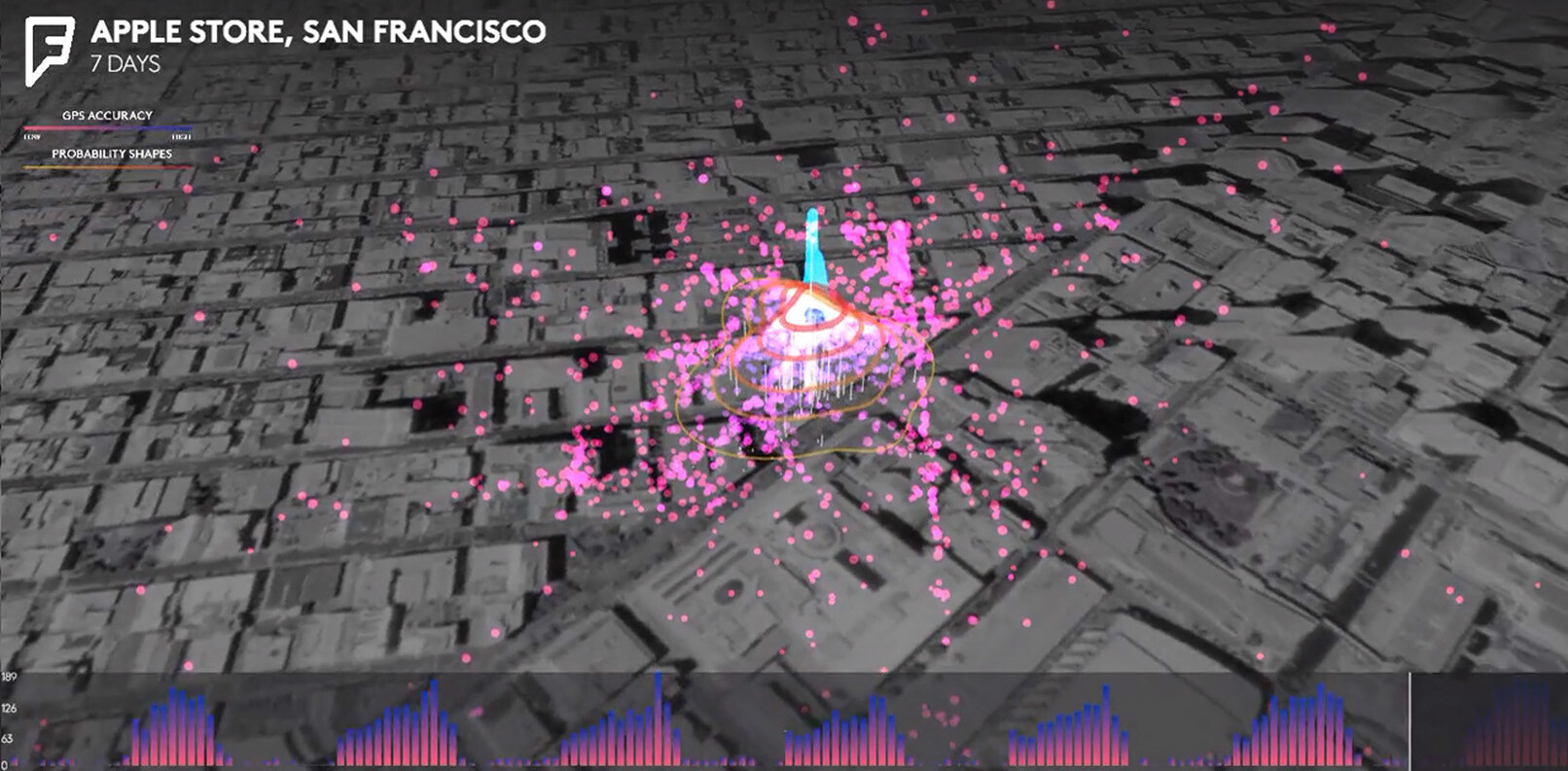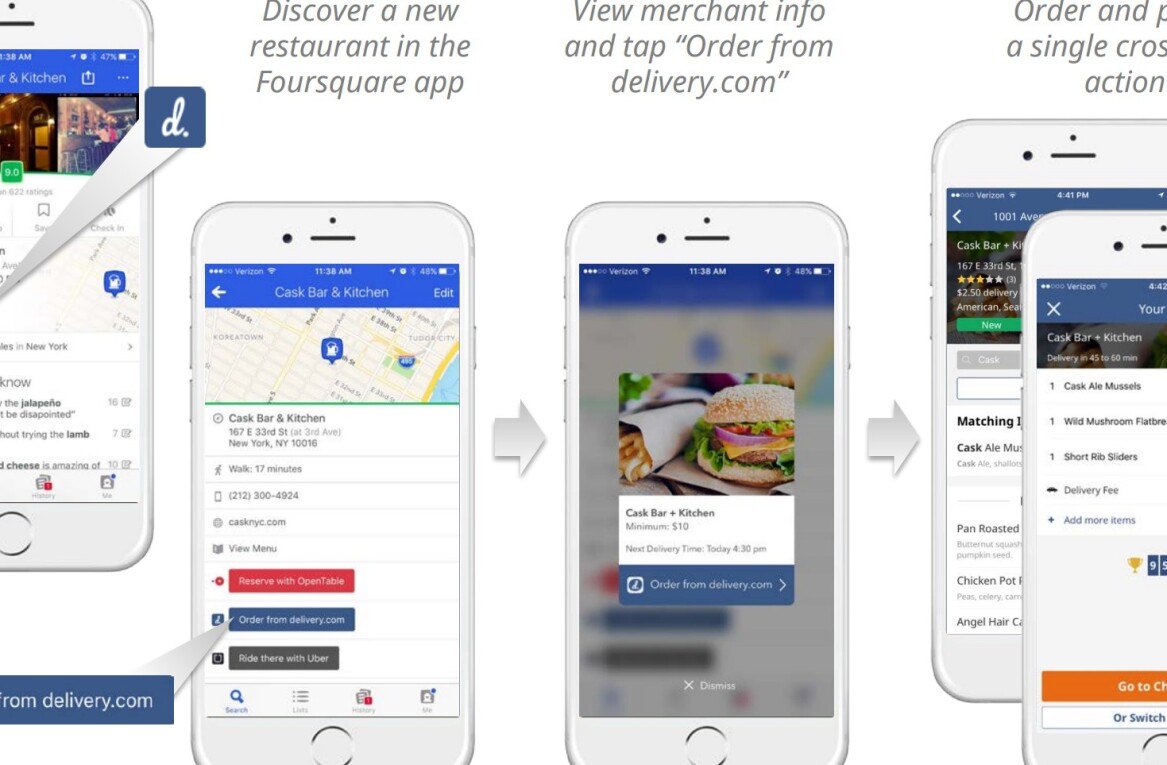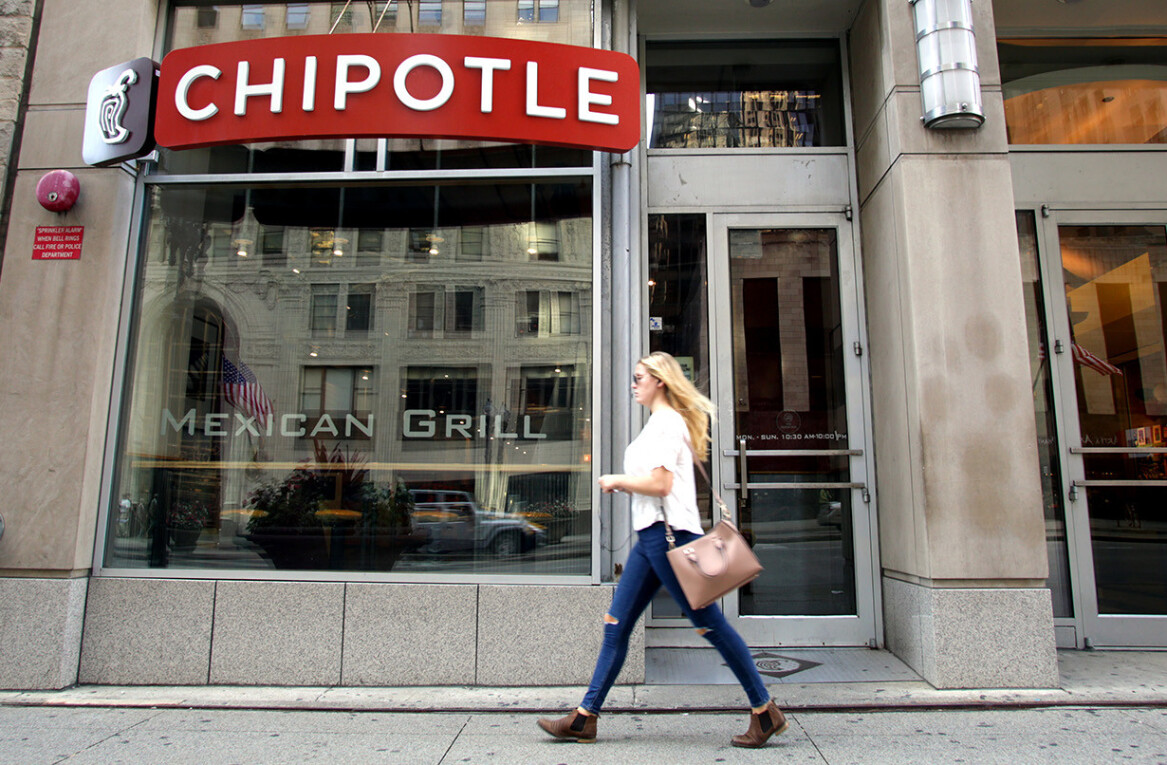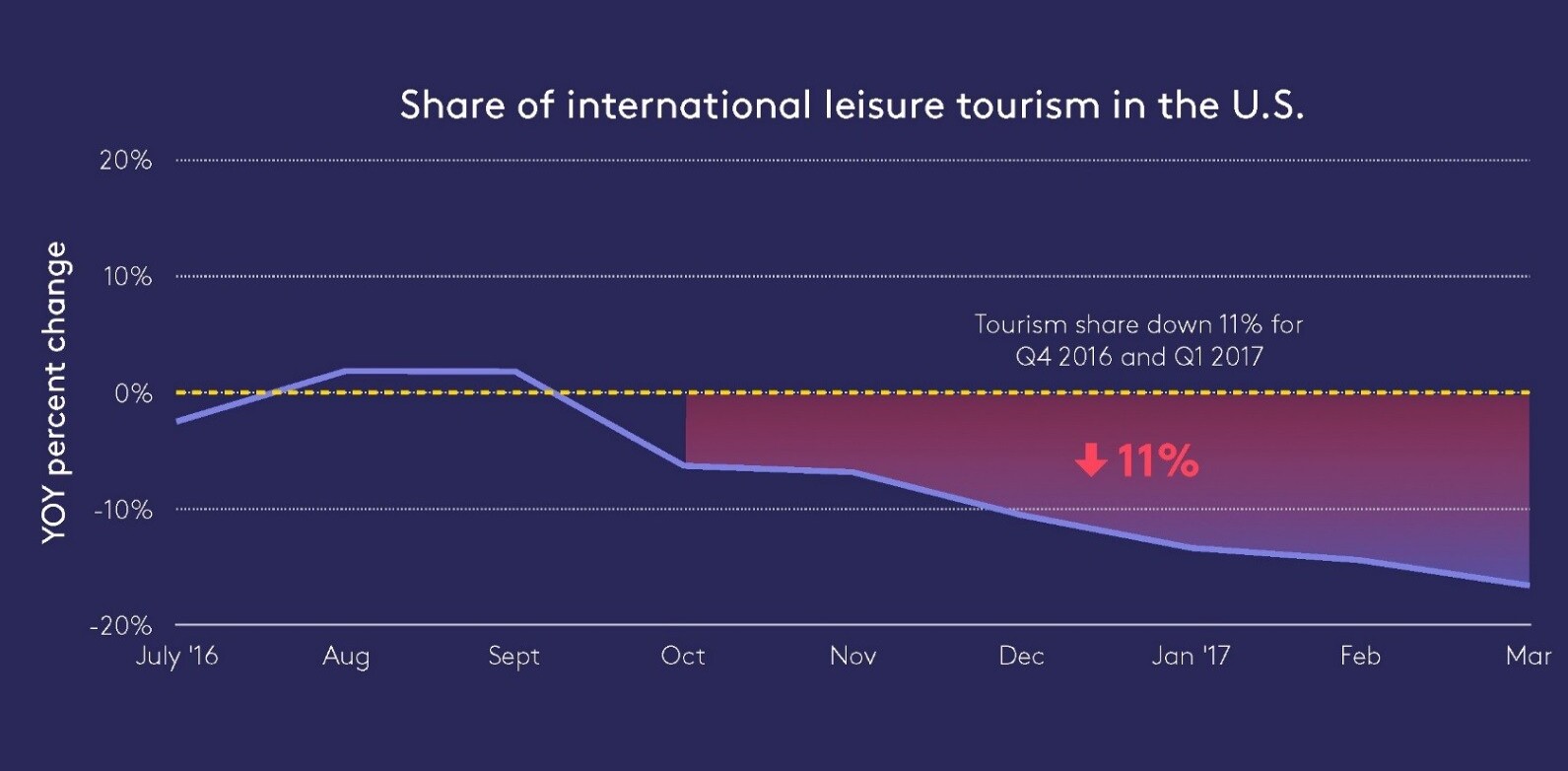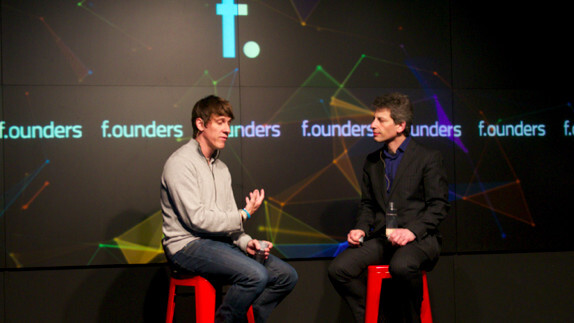
Today at the F.ounders 2013 event at NASDAQ MarketSite in NYC, Foursquare’s Dennis Crowley joined Wired’s David Rowan
Crowley spoke on the current state of Foursquare and what exact kind of business it now is as it enters a stage of life where it is now attempting to generate revenue.
“We build apps for mobile phones that help them find the best stuff nearby, said Crowley, noting that it had moved away from the early badges and gamification elements. “it was a gateway drug,” he says. It allowed Foursquare to collect the data that it’s now using to provide the recommendation engine service that it has recently become.
“Four years later, there’s fewer of those competitors. Our sole focus is building mobile tools to figure out what’s nearby…that’s the only thing that we do,” said Crowley. “Our users know us for local search…that gives us a unique, defensible position.”
“We’re starting to generate revenue now,” Crowley said about its efforts to really monetize. “We launched our first revenue generating products in the second half of last year. We’re slowly scaling them up. We’re focusing on national advertisers and brands.”
American Express offers have been expanded to other credit cards including Mastercard and Visa, letting Foursquare go to merchants with offers and such.
“This happened back in Dodgeball, people looked at it and said this isn’t going to work…we’ve known that there is something interesting here. We’ve known that these little bits of check-in signal are capable of magic. There’s no doubt that social maps, lead generation for local merchants and software that knows where you are and where you’ve been…It’s our big opportunity to build the products that take advantage of that.”
Rowan also queried Crowley about how he felt when Facebook launched its competing ‘Places’ product.
“There’s nothing we can do about these guys being inspired by our work…people can copy what you’ve done, but they can’t copy what you’re going to do,” Crowley responded.
“The difference between the Android app and the iPhone app. One is a lot simpler than the other. We’ve been in the process of simplifying our products. Jack Dorsey has a great quote about being the ‘editor of a product’. It’s very easy to keep adding stuff to a product.”
“It’s about educating merchants,” said Crowley. The potential, he says, is building products for merchants that have never existed, allowing them to segment their customers to attract and address specific types of customers. Crowley held up Walgreens as an example, who ran a campaign that targeted specific customers who were in the vicinity of a particular store and had checked in there before. They were offered a discount coupon that offered a discount.
Crowley then showed a visualization that demonstrated the ‘pulse’ of check-ins on Foursquare in New York and Tokyo. With the data, he says, Foursquare can do things like predict exactly where you’re going to be in 20 minutes, or where you would like to be in 20 minutes. This kind of predictive analytics are what he posits are the strength of Foursquare, who he insists is the only company to gather this kind of data set.
“How do you see around corners and through walls, and ho do you do it with software,” Crowley says is the question that we will ask as we move into the future of data collection. “Right now, we buzz the phone in your pocket…eventually maybe this will buzz [pointing to his watch] or this will buzz [mimicking Google Glass].”
Crowley says that he doesn’t consider himself a serial entrepreneur because he’s been solving the same problem, which is how to make cities easier to use. “If we can give people the superpowers that we’ve been talking about,” he says, “I might think ok, it’s time to move on to something else.”
Those superpowers include the ability to leverage all of the data being collected by services like Foursquare and quantified self devices. To use it for their own good, effectively ‘getting something back’ for their contribution of data.
If he could change a single thing about Foursquare, Crowley says, it would be a perception thing. The way that people look at Foursquare as just a badge collector, rather than a personalized local search tool. That’s been an ongoing theme as Foursquare transitions its product to a full-on Yelp competitor using its social and location signals.
Get the TNW newsletter
Get the most important tech news in your inbox each week.

